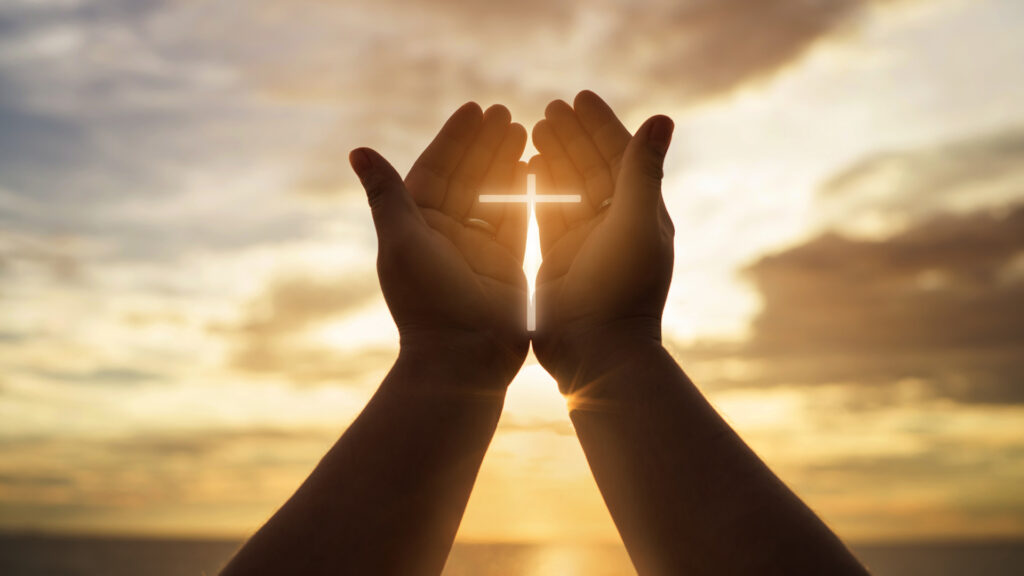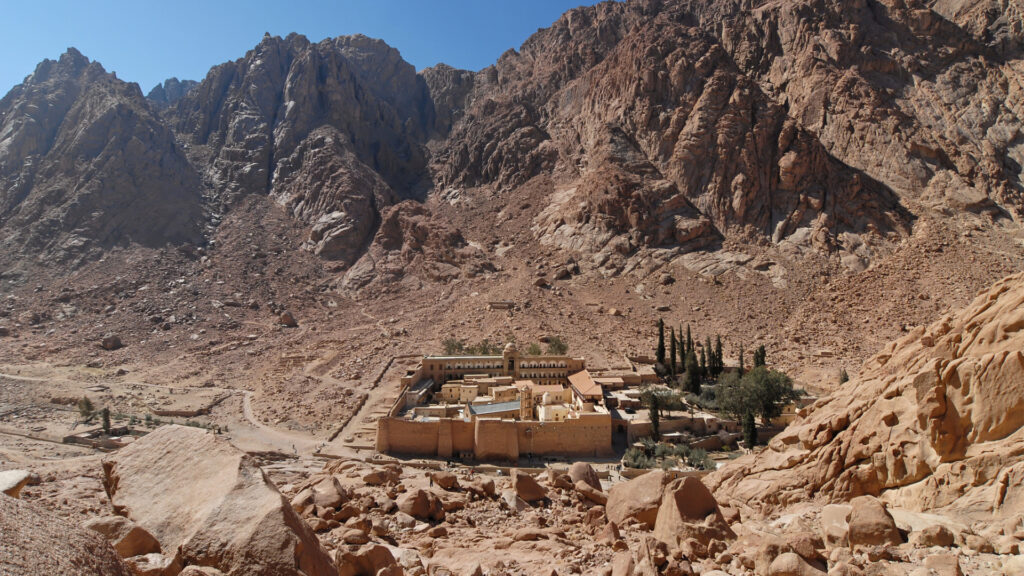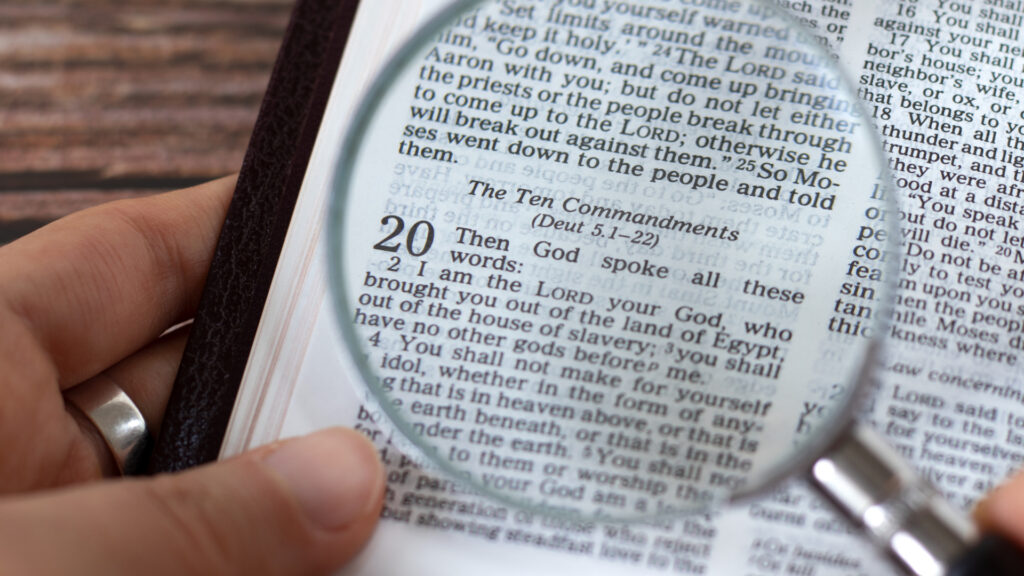Posts by reachchurch
Keep It Burning
Read This Week: Exodus 27
Command the Israelites to bring you clear oil of pressed olives for the light so that the lamps may be kept burning. In the tent of meeting, outside the curtain that shields the ark of the covenant law, Aaron and his sons are to keep the lamps burning before the Lord from evening till morning. This is to be a lasting ordinance among the Israelites for the generations to come. – Exodus 27:20-21 NIV
Exodus 27 might not be the first place people consider for personal growth or spiritual guidance in the Bible. But, it offers profound insights when we take the time to look at and study it. This section outlines God’s instructions to Moses for constructing the altar of burnt offerings, the courtyard of the Tabernacle, and the care of the lampstand. At first glance, it may seem like a collection of ancient building codes, but a deeper look reveals timeless lessons about worship, community, and the nature of God.
The chapter begins with the construction of the altar of burnt offerings (vv. 1-8). Made of acacia wood and overlaid with bronze, the altar was the central place where sacrifices were made. Its design, including horns on each corner and rings for portability, symbolizes several key principles. It shows us that sacrifice is an act of worship. Worship of God involves sacrifice, and while we no longer bring animal offerings, we are called to offer our time, resources, and hearts as acts of devotion to the Lord (Romans 12:1).
The rings and poles for carrying the altar suggest that worship and connection with God are not confined to a single location. This imagery echoes the New Testament truth that God’s presence dwells within us as believers (1 Corinthians 3:16). The altar’s horns are a recurring symbol in Scripture, often associated with refuge and salvation (Psalm 18:2). This reminds us of God’s provision of safety and redemption.
Verses 9-19 describe the construction of the courtyard, a space that surrounded the Tabernacle. Enclosed by linen curtains and bronze bases, the courtyard was a community area where people gathered to worship. The courtyard’s design balanced openness and a sacred space. While it welcomed the Israelites, it also had clear boundaries, teaching us that while God is approachable, He is also holy. We’re invited to embrace God’s presence through the Holy Spirit while also respecting His holiness and eternality. The courtyard was a shared space, emphasizing the importance of communal worship. In our modern context, this highlights the need for fellowship and encouragement from gathering with other Christians (Hebrews 10:24-25).
The chapter concludes with instructions for the care of the lampstand (vv. 20-21). Aaron and his sons were tasked with continually burning the lamp, using pure olive oil. The perpetual flame represents God’s presence and guidance. Just as the lampstand required constant tending, our relationship with God requires ongoing care through prayer, Scripture reading, and obedience. The use of pure olive oil points to the Holy Spirit, who empowers and sustains us. This reminds us to rely on the Spirit’s guidance in our daily lives.
This passage encourages us to be intentional in our worship and is a great reminder to start a new year. Just as the altar and courtyard were constructed with care and purpose, our worship should be thoughtful and intentional. This approach includes setting aside time for prayer, studying Scripture, serving others, and being with the family of God. The design of the Tabernacle’s courtyard also shows that worship is not just an individual act but a communal experience. Seek out opportunities to connect with others in faith, whether through a church, small group, or acts of service.
God’s instructions balance His holiness with His desire to dwell among His people. Approach Him with reverence and confidence, knowing that Christ has made way for us to enter His presence (Hebrews 4:16). Because of this, we should keep the flame burning in our hearts continuously – the responsibility to keep the lampstand lit challenges us to maintain our spiritual disciplines. Just as Aaron and his sons tended the flame, we are called to nurture our faith daily and keep it burning throughout our lives.
Christmas Humility
Read This Week: Luke 2
So Joseph also went up from the town of Nazareth in Galilee to Judea, to Bethlehem the town of David, because he belonged to the house and line of David. He went there to register with Mary, who was pledged to be married to him and was expecting a child. While they were there, the time came for the baby to be born, and she gave birth to her firstborn, a son. She wrapped him in cloths and placed him in a manger, because there was no guest room available for them. – Luke 2:4-7 NIV
The Gospel of Luke, Chapter 2, narrates the birth of Jesus, the announcement to the shepherds, and the presentation of Jesus at the temple. While this chapter is often read during the Christmas season, its themes transcend the holidays, offering profound lessons on humility, divine purpose, and our response to God’s work.
Luke 2:1-7 describes how Mary and Joseph travel to Bethlehem for a Roman census, where Jesus is born in a humble setting—a manger because there was no room at the inn. This image of the Messiah entering the world is striking, not in royal splendor but in modest obscurity. It’s a reminder that God often works in unexpected ways and through ordinary circumstances. In our fast-paced, achievement-driven culture, the humility of Jesus’ birth challenges us to reconsider what we value. Are we chasing recognition and material success, or are we finding contentment in serving others, even in quiet, unnoticed ways?
The following section (vv. 8-20) shifts the focus to a group of shepherds watching their flocks by night. Shepherds, often marginalized in society, are the first to hear the good news of Jesus’ birth. An angel appears, declaring: Do not be afraid. I bring you good news that will cause great joy for all the people (v. 10). This moment is rich in meaning. The shepherds represent the “lowly” to whom God’s grace is extended. The angel’s message is inclusive and joyful, emphasizing that Christ’s coming is for all people, regardless of status or background. This passage prompts a question: How can we ensure that our lives reflect this inclusivity? Do we share the gospel message of hope and joy with those who may feel overlooked or excluded?
One of the most touching verses in the chapter is found in verse 19: But Mary treasured up all these things and pondered them in her heart. Amid the miraculous and the chaotic, Mary’s response is reflective and meditative. In a world filled with constant noise and distraction, Mary’s example encourages us to pause, reflect, and treasure the moments we sense God’s presence. It inspires us to create space for spiritual reflection in our daily lives intentionally.
The latter part of the chapter (vv. 25-38) introduces Simeon and Anna, two devout individuals who recognize the infant Jesus as the promised Messiah. Simeon’s proclamation (my eyes have seen your salvation) and Anna’s joyful testimony demonstrate the fulfillment of long-held hopes and the power of patient faith. Their stories remind us that faith often requires waiting and trust. In our modern era, where instant gratification is the norm, Simeon and Anna’s steadfastness is a powerful example of trusting God’s timing.
The story of Jesus’ birth calls us to embrace humility and seek ways to serve others selflessly, emulating the meekness of Christ’s entrance into the world. It moves us to share the Good News like the shepherds and express joy and hope with those around us, especially those who may feel marginalized. It alerts us to cultivate reflection and time to ponder and treasure the ways God works in our lives. It encourages us to practice patience and trust in God’s timing, even when the wait feels long, as Simeon and Anna did.
Luke 2 is more than a Christmas story; it’s a call to live with humility, joy, and faith. By reflecting on its themes, we can find fresh inspiration to align our lives with God’s purposes, no matter the season.
Lives as Temples
Read This Week: Exodus 26
Make the tabernacle with ten curtains of finely twisted linen and blue, purple and scarlet yarn, with cherubim woven into them by a skilled worker. All the curtains are to be the same size—twenty-eight cubits long and four cubits wide. Join five of the curtains together, and do the same. – Exodus 26:1-3 NIV
The tendency when reading Exodus 26 is to think it is one of those sections in the Old Testament that, at first glance, might seem routine or overly detailed. It describes God’s instructions for building the Tabernacle, the portable sanctuary where His presence would dwell among the Israelites. While this chapter is filled with meticulous details: measurements, materials, and specific designs and might seem like an ancient construction manual, it holds profound spiritual and practical lessons that we can apply to our lives today. These principles are timelessly helpful and relevant to our modern spiritual journeys.
The first part of the chapter shows us the purpose of the Tabernacle. It was not just a tent but a divinely designed meeting place between Father God and His people. It was God dwelling among His children and symbolized God’s desire to be with humanity. Despite the Israelites’ imperfections, God wanted to be near them. It was the place where they could commune with and worship Him. Every detail of the Tabernacle directed the people’s attention to the holiness and glory of God. Worship was not casual but orderly, reverent, and intentional. God’s instructions were exact. Chapter 26 teaches that obedience to God’s Word matters. Even the minor details are significant in creating a space where we can experience God’s presence.
All 37 verses highlight specific materials: curtains of fine linen, gold-plated boards, loops of blue, and coverings made from ram and goat skins. While these details may seem far removed from our lives, they carry a deeper meaning. The Tabernacle was crafted with fine supplies and intricate designs, showing that God values beauty and excellence in what we offer Him. Whether in worship, work, family, or service, we are called to give our best, not our leftovers.
The curtains were joined together with loops and clasps, creating one unified sanctuary. This teaches us about unity in God’s work. Each piece – no matter how small or ornate – played a role in forming the Tabernacle. The various coverings of the Tabernacle protected it and symbolized God’s covering over His people. Even the seemingly mundane details remind us that God is our protector and refuge.
Today, the Tabernacle reminds us that the Lord still desires to dwell in our hearts and communities. It points to the greater understanding of God being among us through Jesus; as John 1:14 says, the Word became flesh and dwelt among us. Because of Christ and His Holy Spirit, God’s dwelling place is in us. Collectively, the Church is now God’s dwelling on earth. Like the Tabernacle, we are called to be places where God’s presence is experienced and made known. The Spirit must lead us to reflect God’s holiness, unity, and excellence to the world. Our communities need to provide a welcoming space for others to encounter God. Our lives are to be as temples where the Lord dwells.
God’s specific instructions in Exodus 26 remind us that the small things matter. Whether in our spiritual habits, relationships, or acts of service, faithfulness in the details reflects our love and reverence for the Father. In 1 Corinthians 6:19, Paul reminds us that our bodies are temples of the Holy Spirit, and just as the Tabernacle was constructed intentionally, our lives must be purposely built to reflect God’s presence among people who desperately need Him.
Sacred Space
Read This Week: Exodus 25
The Lord said to Moses, “Tell the Israelites to bring me an offering. You are to receive the offering for me from everyone whose heart prompts them to give. These are the offerings you are to receive from them: gold, silver and bronze; “Then have them make a sanctuary for me, and I will dwell among them. Make this tabernacle and all its furnishings exactly like the pattern I will show you. – Exodus 25:2-3 & 8-9 NIV
Exodus 25 introduces God’s instructions to Moses for constructing the Tabernacle, the sacred space where God would dwell among His people. This chapter isn’t just about architectural blueprints or ritualistic details; it is a profound revelation of God’s desire to be intimately present with His people. He desires a relationship with His people and is not merely a distant, sovereign, and holy judge.
In verse 8, God declares, “Then have them make a sanctuary for me, and I will dwell among them.” This statement shows us God’s yearning for closeness with human beings. The Tabernacle was a tangible symbol of God’s presence, reminding the Israelites that their God was not aloof or detached but actively involved in their lives. God’s desire for a relationship remains unchanged to this day. He is intimately involved and interested in us and who we are. In our busy lives, we can also cultivate this connection by setting aside time for prayer, reflection, and worship—our own “sanctuary” moments where we can meet with God.
This passage also highlights generosity as worship. God instructs Moses to collect offerings for the Tabernacle’s construction (v. 2-7). These offerings were to come from those who gave willingly and with a heart of devotion and gratitude. Our worship should be marked by generosity, whether it’s our time, talents, or resources. Just as the materials of gold, precious stones, and fine linen were valuable and shows the very best, our giving to God should reflect the same joy and reverence. What we offer every day can reflect our love for Jesus.
As we’ve seen so many times in Exodus, there is attention to detail in God’s work. The instructions for the Ark of the Covenant, the Table of Showbread, and the Golden Lampstand (v. 10-40) are remarkably detailed. Every dimension, material, and design element was intentional, symbolizing deeper spiritual truths. This attention to detail reflects God’s perfection and order. Excellence in our work reflects and honors God. Whether we’re designing a project, raising a family, or serving in ministry, the details matter. Approach your tasks with diligence, knowing that God values the quality of your efforts.
The following section demonstrates that God always preserves His vision and covenant. The Israelites were formerly enslaved people wandering in the wilderness, yet they had the resources to build an elaborate Tabernacle. How? They had carried wealth from Egypt (Exodus 12:35-36), demonstrating that God equips His people for the tasks He calls them to. Just as we see in Philippians 1:6, which says, being confident of this, that He who began a good work in you will carry it on to completion until the day of Christ Jesus, God gives us a vision, He also provides the means to fulfill it. Trust in His timing and provision and take bold steps of faith, knowing He will supply what is needed. He gives us what we need no matter our circumstances or challenges.
Finally, the Ark of the Covenant, the mercy seat, and other Tabernacle elements point forward to Jesus Christ. The mercy seat, where atonement was made for us, foreshadows Christ’s ultimate sacrifice for humanity’s sins on the cross. The Tabernacle, as a whole, symbolizes God’s plan to dwell with His people, fulfilled through Jesus (John 1:14). We must recognize the continuity of God’s redemptive plan throughout history and how effective it is for our lives. Studying the book of Exodus has deepened our appreciation of how the Old and New Testaments interconnect, enriching our faith and understanding of God’s character and helping us realize its power in our modern lives.
Exodus 25 is not just an observance of ancient instructions for the Lord’s people; it’s a constant invitation into a sacred space with the Father. It’s a vivid reminder of His desire for communion, our call to worship through generosity and excellence, and His faithfulness for His purposes. As we read and think about this chapter, may it inspire us to create “sanctuaries” in our lives where God’s presence is welcome, celebrated, and sacred.
Transformative Joy
Read This Week: Exodus 24
When Moses went and told the people all the Lord’s words and laws, they responded with one voice, “Everything the Lord has said we will do.” Moses then wrote down everything the Lord had said. He got up early the next morning and built an altar at the foot of the mountain and set up twelve stone pillars representing the twelve tribes of Israel. – Exodus 24:3-4 NIV
Chapter 24 is pivotal in Exodus, where God’s covenant with Israel is formally confirmed. This moment marks a transition from giving the law to establishing a sacred relationship between God and His chosen people. The chapter is rich with spiritual insights and practical applications, offering lessons on covenantal faithfulness, worship, and the holiness of God. The chapter begins with an invitation from God to Moses, Aaron, Nadab, Abihu, and seventy elders of Israel to ascend Mount Sinai. Here, God reveals His presence. The layout of this chapter reflects a covenant ceremony, which shows the transformative joy of Israel’s commitment.
This section demonstrates that God calls specific leaders to approach Him but with clear boundaries. While Moses alone can come near, others must worship from afar. This emphasizes God’s holiness and the necessity of reverence in coming before Him. Verses 3-8 show that Moses shares God’s laws with the people, and they respond, “All the words which the Lord has said we will do.” Moses offers sacrifices and sprinkles the blood on the altar and the people, symbolizing the binding nature of this covenant. Blood signifies purification and commitment, foreshadowing to the ultimate covenant in Christ’s blood.
Verses 9-11 tell us that The leaders see a manifestation of God, described as a pavement of sapphire beneath His feet—a scene of transcendent beauty and holiness. Remarkably, they eat and drink in His presence, signifying peace and fellowship. Then in verses 12-18, God calls Moses higher to receive the stone tablets. As Moses enters the cloud of glory, the text emphasizes his obedience and the awe-inspiring presence of God, represented by the consuming fire on the mountain.
The people’s declaration, “We will do and be obedient,” highlights the importance of commitment in a covenant relationship. For believers today, it serves as a reminder that faith must be accompanied by a willingness to follow God’s commands. The structured approach to God’s presence—allowing some to draw closer while others remain at a distance—teaches reverence. It also points to Christ as our mediator, through whom we have full access to God.
The sprinkling of blood prefigures Jesus’ ultimate sacrifice, which sealed the new covenant (Hebrews 9:12–15). This invites us to reflect on the depth of God’s grace and the cost of our redemption. The sapphire-like pavement and the consuming fire illustrate God’s otherness and majesty. This should inspire awe in our worship and remind us that our God is transcendent and approachable through Christ. Moses’ ascent to the cloud represents an invitation to deeper communion with God. In our spiritual journey, we are also called to seek God’s presence and linger in His word and prayer for deeper understanding and intimacy.
Just as the Israelites affirmed their obedience, we should take time to reaffirm our commitment to God. Reflect on areas of our lives where we must align more closely with His will. Consider how we prepare for worship. Do we come with a sense of awe, or has it become routine? It should compel us to reflect on God’s holiness as we gather in His presence. The blood of the covenant points to Christ, and we should let the significance of His sacrifice motivate us to live a life of gratitude and surrender.
Moses’ encounter with God also shows the value of solitude with Him. Dedicate time each day to seek His presence through Scripture and prayer, allowing His glory to transform you. The shared meal in God’s presence reminds us of the importance of community. Engage in Christian fellowship where mutual encouragement and shared worship are central.
This section of our study is a profound narrative of God’s desire to dwell with His people, establish relationships, and invite them into His glory. As we study and meditate on Exodus 24, may we be inspired to live in covenantal faithfulness, worship God with honor, and seek His presence daily. In doing so, we experience the joy and transformation of fellowship with the Almighty.
Walk Faithfully
Read This Week: Exodus 23
Do not spread false reports. Do not help a guilty person by being a malicious witness. “Do not follow the crowd in doing wrong. When you give testimony in a lawsuit, do not pervert justice by siding with the crowd, and do not show favoritism to a poor person in a lawsuit. – Exodus 23:1-3 NIV
Exodus 23 begins by addressing truth-telling and justice. The text warns against spreading false rumors, following the crowd in doing wrong things, and showing favoritism in disputes, whether to the rich or the poor. It delves into the issues of impartiality and honesty as the bedrock of justice and a way to live as a society.
In a world where national and social media propagates and amplifies misinformation and peer pressure often sway decisions, this passage reminds us to seek truth and act with integrity no matter the outside influence. Justice is not about popularity or convenience but about fairness and accountability. Before sharing news or opinions, the principles of the OT law and the teachings of Jesus and Paul call us to pause and verify their accuracy. We should commit to advocating for fairness, even when it’s unpopular or difficult.
Verses 4-5 provide an unexpected directive: if you encounter your enemy’s ox or donkey wandering, you must return it. If the animal is struggling under a heavy load, you must help, regardless of personal grievances. This teaching rises above mere legality; it calls for compassion that transcends enmity. It challenges our instinct for revenge or indifference toward those we dislike. By fostering goodwill even toward enemies, we build bridges rather than barriers. Next time we’re faced with an opportunity to help someone we dislike or disagree with, act on it. Unexpected kindness can heal relationships and transform hearts.
Verses 10-12 reiterates the importance of the Sabbath, extending rest not just to people but also to animals and the land. Every seventh year, the land was to lie fallow so the poor could glean its produce, and the Sabbath day ensured rest for all, including servants and foreigners. These practices reveal God’s care for creation and commitment to equitable provision. They remind us that rest is not a luxury but a necessity—for people, communities, and the environment. In our fast-paced, productivity-driven culture, embrace rhythms of rest. Take intentional breaks to rejuvenate your body, soul, and relationships.
Verses 13-19 take us to laws concerning worship that emphasize devotion to God, keeping the festivals, and offering the best of what we have. Worship was an act of reverence, gratitude, and commitment to the Lord. This section challenges us to prioritize God and give Him our best—not just in material offerings but in our time, energy, and focus. These passages challenge us today and ask us to consider how we structure our time and resources. Are we offering God the first fruits of our lives, or merely what’s left over after everything else?
Verses 20-33 bring the chapter to its conclusion with a promise: God would send an angel to guide and protect the Israelites on their journey. Their success, however, depended on obedience and faithfulness. They were warned against adopting the practices of the nations they would encounter and were promised blessings if they remained faithful. This section highlights the interplay of divine provision and human responsibility. God provides guidance, but we must choose to follow. We can trust God’s timing and direction, even when the path seems uncertain. Obedience may require letting go of practices or habits that conflict with our faith.
This chapter of Exodus calls us to live lives marked by justice, compassion, integrity, and faithfulness. Whether in our interactions with others, our care for creation, or our relationship with God, this chapter challenges us to align our lives with God’s word and His principles. As we navigate a complex and often unjust world, may we embody this timeless wisdom, becoming people who stand for truth, extend compassion, practice rest, and walk faithfully with Father God. In doing so, we honor Christ and contribute to a more just and merciful world.
Alignment
Read This Week: Exodus 22
If you lend money to one of my people among you who is needy, do not treat it like a business deal; charge no interest. If you take your neighbor’s cloak as a pledge, return it by sunset, because that cloak is the only covering your neighbor has. What else can they sleep in? When they cry out to me, I will hear, for I am compassionate. – Exodus 22:25-27 NIV
Exodus 22 outlines justice, restitution, and compassion precepts. It encourages us to align our lives with the guiding moral, ethical, and spiritual principles of God’s word. The chapter begins with detailed laws concerning property and theft. For instance, if a thief is caught stealing, they must repay multiple times the value of what they took. This principle of restitution emphasizes accountability over mere punishment. Instead of imprisonment or physical retribution, the offender is required to make amends directly to the victim. In our justice systems today, how often do we prioritize restoration over punishment? Restorative justice practices, which focus on repairing harm and rebuilding relationships, align with this biblical principle.
The chapter also includes laws that safeguard the rights of women, widows, orphans, and foreigners – groups who were particularly vulnerable. For example, the seduction of a virgin carries specific penalties, ensuring her dignity and security are upheld. The text also issues stern warnings against oppressing widows, orphans, or non-native people, with God personally pledging to intervene against those who exploit them.
These verses remind us of the importance of protecting marginalized communities. Whether through policies that ensure equal opportunities or grassroots efforts to support those in need, these commands encourage us to reflect God’s justice in our treatment of others.
The chapter concludes with regulations about fair lending practices, respect for God and community leaders, and the dedication of the firstborn to God. Lending without charging interest to people experiencing poverty illustrates compassion and solidarity. The commands about offering the firstborn demonstrate acknowledgment of God’s provision and lordship.
This section challenges us to examine how we handle resources and power. We make choices around lending a helping hand to those in need without exploiting them. The Scriptures call us to give back to God and others with gratitude and trust. Similarly, we see that justice is relational. The emphasis on restitution shows that justice is not about abstract rules but restoring relationships. When harm occurs, we should make every effort to heal and reconcile, not merely punish and pay back.
God’s heart for the poor and marginalized is evident in His severe warnings against exploitation. Societies that neglect the needs of the weak betray the moral order that underpins healthy communities. Laws against charging interest to the poor or keeping a neighbor’s cloak overnight as collateral (verses 25–27) are acts of compassion embedded in justice. These laws remind us that humanity and dignity should never be sacrificed for profit or convenience.
We have a responsibility as Christian citizens to focus on restitution and reconciliation rather than retribution alone. We have a responsibility to the least of these in the community to serve others and support widows, orphans, foreigners, and people in need. We are also responsible for approaching giving and financial decisions with a mindset of generosity and fairness, reflecting God’s compassion. We must recognize that everything we have comes from Father God while using our resources to bless others and advance His purposes.
Exodus 22 calls us to pursue justice that heals, to show compassion that uplifts, and to build communities rooted in care and respect. By aligning our lives with these principles, we honor Christ and contribute to a world where His love and mercy are reflected in our daily interactions.
Lived Realities
Read This Week: Exodus 21
“If people quarrel and one person hits another with a stone or with their fist and the victim does not die but is confined to bed, the one who struck the blow will not be held liable if the other can get up and walk around outside with a staff; however, the guilty party must pay the injured person for any loss of time and see that the victim is completely healed.” – Exodus 21:18-19 NIV
Exodus 21 is one of the Bible’s most intriguing and often misunderstood chapters. It sits immediately after the Ten Commandments in Exodus 20 and introduces a broader legal code given to the Israelites. At first glance, it might seem like a dry list of ancient laws that are no longer relevant. However, a deeper look reveals insights into God’s character and the timeless principles of justice and mercy.
The laws in this section were part of the Covenant Code, intended to guide a fledgling nation as it emerged from slavery in Egypt on its journey to freedom. The Israelites were transitioning from being a people under the oppressive rule of Pharaoh to a free, self-governing community. In addition to the Ten Commandments, these laws were revolutionary for their time, providing a foundation for justice, protection, and dignity. They were given within a specific historical and cultural context of ancient Near Eastern societies with harsh practices and brutal justice systems. The laws of the Covenant Code sought to mitigate this by introducing boundaries and guidelines that emphasized the value of human life and the importance of equitable treatment.
One of the most famous principles in this chapter is the eye for an eye law (v. 23-25). This is known as lex talionis or the law of retribution. At first, it may sound harsh, but it intended to limit vengeance and ensure proportional justice. Instead of escalating violence, this law demanded a punishment fitting the crime. It asserted that justice should be fair, neither too lenient nor excessively harsh. This principle brought a sense of balance in a culture where revenge often spiraled out of control. It set a precedent that punishments should be equitable, serving as a deterrent against crime and curbing the sinful desire for disproportionate retaliation. Fairness and proportionality in justice are ideals that modern legal systems still strive for. It challenges us to consider how we respond to wrongdoing – do we seek restoration or vengeance?
Exodus 21 contains various laws about injury and death, emphasizing the sacredness of human life. Whether the laws pertain to accidental harm, violence, or negligence (like a dangerous animal not being controlled), the spotlight is on accountability and the inherent value of every individual. If a person causes harm to another, there must be restitution (verses 18-19). If an animal causes a death due to the owner’s negligence, the owner is held responsible (verses 28-29). The laws make it clear that life is precious and must be protected, whether it’s the life of a servant, a neighbor, or even an unborn child (verse 22). This principle was revolutionary in a time when human life was often cheap and dispensable. This focus on life’s value challenges us today in our attitudes towards violence, justice, and the sanctity of life. It invites us to advocate for policies and practices that uphold human dignity, whether in criminal justice, healthcare, or society as a whole.
This section might seem like a list of legality, but it also contains threads of mercy woven throughout. For instance, the stipulation that a Hebrew servant goes free after six years reflects a compassionate concern for freedom and restoration. Moreover, the protections for women servants show an early effort to prevent exploitation. These laws were not just about punishment; they were about creating a community that reflects the character of God, a God who is righteous, just, merciful, and compassionate. Mercy and justice are often seen as opposing forces, but the Bible shows us they can go hand in hand. It encourages us to examine our hearts and see if we are as quick to offer grace as we are to demand justice.
Whether it’s victims of human trafficking, the impoverished, or the marginalized, the spirit of Exodus 21 calls us to stand up for those who cannot defend themselves. In our desire for justice, we must guard against the temptation to seek punishment only. True justice seeks restoration and reconciliation. In all aspects of life – faith, law, healthcare, social policy – human life should be held in the highest regard. This biblical principle should inform our decisions and actions. While we must stand for what is right, we must also remember that mercy triumphs over judgment, as evidenced in the cross of Jesus. Offering grace and forgiveness is a reflection of the will of God and His plan of salvation.
Exodus 21 reminds us that the same God who gave these commands is the God who calls us today to live justly, love mercy, and walk humbly with Him (Micah 6:8). In a world often divided between calls for justice and pleas for mercy, we see a balanced vision in this chapter. It’s a vision of a Holy Spirit guidance in a community where fairness, dignity, and compassion are not merely ideals but lived realities.
Purpose and Peace
Read This Week: Exodus 20
And God spoke all these words: “I am the Lord your God, who brought you out of Egypt, out of the land of slavery. “You shall have no other gods before me. “You shall not make for yourself an image in the form of anything in heaven above or on the earth beneath or in the waters below. You shall not bow down to them or worship them. – Exodus 20:1-4 NIV
Exodus 20 is one of the most referenced passages in the Bible, as it introduces the Ten Commandments. These commandments are often seen as ancient laws, but they are still relevant to today’s world. They offer principles for building a life of faith in God, integrity, accountability, and purpose. It is always a good practice to look at these commandments to understand how they apply practically to our modern lives.
The chapter begins with God speaking to the Israelites, who were still fresh off their deliverance from Egypt and on their journey to freedom. But this section of Scripture doesn’t just list moral guidelines; it sets a foundation for the relationship between God and all of humankind. The commandments are not merely rules, as some would assert; they are a covenant — a sacred agreement that establishes trust and accountability. When viewed this way, the commandments become more than an outdated code of conduct; they’re principles for fostering spiritual respect, trust, and integrity in our interactions with God and each other.
Each commandment can serve as a moral compass in our daily decision-making. Here’s a look at each one, with some insights on how it can guide us:
You shall have no other gods before Me. This commandment is about prioritizing what truly matters. In today’s world, “other gods” can mean anything we allow to take priority over our core values or beliefs. It could be work, social media, money, or approval from others. Reflect on where your time and energy go and ensure that your life’s purpose aligns with what you truly value.
You shall not make for yourself a carved image. This commandment encourages us to avoid idolizing material things. It’s easy to become attached to possessions or superficial success. Focus on building a purpose-based life rather than letting external objects define your self-worth.
You shall not take the name of the Lord your God in vain. This one goes beyond speech and includes living in a way that respects the divine. It’s about aligning our actions with integrity, respecting what’s sacred, and living authentically without misusing trust or authority.
Remember the Sabbath day to keep it holy. Rest is essential for productivity, creativity, and health. Taking time to disconnect from daily pressures allows you to recharge and gain perspective. Make time for rest, reflection, and connection, whether one day a week or intentional moments throughout our schedule, like the day we gather to worship the Lord.
Honor your father and your mother. This is about respect for those who have nurtured and guided us. Honoring parents, or other mentors, can be challenging, especially when relationships are strained. But this commandment urges us to value those relationships and practice gratitude, even if it’s through small acts of kindness and understanding.
You shall not murder. While this might seem straightforward, it extends beyond physical harm. We can harm others through words, actions, or even neglect. This commandment calls for a commitment to protecting life in every form, including nurturing positive interactions and promoting peace.
You shall not commit adultery. Faithfulness is foundational for trust in any relationship. This commandment emphasizes the importance of loyalty, not only in marriage but in all relationships. Being honest, dependable, and honoring commitments strengthens bonds and fosters genuine connections.
You shall not steal. This encourages us to respect others’ rights and boundaries. Beyond taking physical things, stealing can include misusing someone’s time, ideas, or trust. Practicing fairness and integrity in all interactions reflects our respect for others.
You shall not bear false witness against your neighbor. Truth is vital for trust. Misrepresenting others, gossiping, or lying can damage reputations and relationships. This commandment encourages honesty and compassion in our conversations, urging us to see the best in people and communicate in ways that build trust.
You shall not covet. This commandment speaks to the root of jealousy, comparison, and dissatisfaction. Coveting often leads to negative feelings and actions. Cultivating gratitude and contentment can help combat envy, allowing us to celebrate others’ successes without feeling threatened.
The Ten Commandments are timeless because they speak to universal human needs: the intrinsic need for God, the desire to be loved, respected, and live in harmony with others. The commandments encourage self-respect and respect for others, which are fundamental to healthy relationships. They promote honesty and discourage behaviors that undermine trust. Living with integrity helps us build relationships rooted in authenticity. The commandments discourage covetousness and greed, urging us to find satisfaction and peace within ourselves and our lives. By focusing on our higher purpose — whether through an intimate relationship with Christ, personal growth, or serving others — we stay grounded and less susceptible to distractions.
Living by the Ten Commandments under the grace of God through the cross doesn’t mean we won’t face challenges. However, using them as a moral and ethical framework provides us with tools to navigate life’s complexities. They can be a blueprint for a life of purpose and peace.
The Ten Commandments remind us that ethical living isn’t about restriction but freedom. We build a life rooted in integrity and fulfillment by respecting ourselves and others. Whether or not one approaches these commandments from a religious perspective, their wisdom is practical and universal. They invite us to live mindfully, value relationships, and strive for a life of meaning that transcends time and culture.
Intentional Time
Read This Week: Exodus 19
Then Moses went up to God, and the Lord called to him from the mountain and said, “This is what you are to say to the descendants of Jacob and what you are to tell the people of Israel: ‘You yourselves have seen what I did to Egypt, and how I carried you on eagles’ wings and brought you to myself. Now, if you obey me fully and keep my covenant, then out of all nations, you will be my treasured possession. – Exodus 19:3-5 NIV
Exodus 19 not only marks the moment when Israel encounters the God who has led them out of slavery but also initiates their transformation from a wandering people into a covenant community. Exodus 19 is the setup for the giving of the Ten Commandments in Chapter 20, and it gives us some insights into how encounters with the Lord have the power to shape individuals and communities.
As the Israelites arrive at Mount Sinai, God instructs Moses to tell the people to prepare for an encounter. This preparation includes consecrating themselves and abstaining from certain activities for three days (Exodus 19:10-11). This process is about more than physical readiness; it’s a spiritual cleansing, a way of setting aside distractions to focus fully on encountering the divine.
For anyone seeking a deeper relationship with God, preparation is key. Spiritual growth often requires a willingness to step back from daily routines and set aside intentional time for reading God’s word, prayer, reflection, and maybe even fasting. Just as the Israelites had to be set apart to experience God’s presence fully, we, too, need to create space in our lives for spiritual readiness. This discipline and devotion don’t always require drastic measures but can be as simple as daily moments of quiet, study, or being with Father God.
In Exodus 19:5-6, God offers Israel a unique relationship: “If you obey me fully and keep my covenant, then out of all nations you will be my treasured possession.” This covenant is a two-way commitment that requires faithfulness from both sides. For Israel, it’s a call to obedience and holiness; for Yahweh, it’s a pledge of protection, guidance, and blessing. This relationship is not based on making a deal or guilt but on mutual consent and trust.
Covenant relationships—whether with God or others—are defined by commitment and mutual involvement. Just as Israel was invited to enter into a covenant willingly, we are invited to enter intentional relationships with Jesus and others, whether spiritual or personal. These relationships are strengthened by trust, consistency, and honesty. Covenant isn’t just about rules but shared commitment and accountability. In today’s fast-paced, often transactional world, nurturing covenantal relationships reminds us of the power of dedication and the peace that comes from knowing we are not alone.
As Moses ascends the mountain and speaks with God, the people witness a dramatic display of thunder, lightning, and thick clouds. This incredible encounter demonstrates God’s holiness and the serious nature of the covenant they enter (v. 16-18). For Israel, this moment is transformational. They are not only following God out of a crisis (bondage in Egypt); they are now becoming a people with a purpose—to be a “kingdom of priests and a holy nation” (v. 6).
Encounters with the divine, big or small, are often transformational. They push us beyond where we are comfortable and open our eyes to new purposes. This transformation can be frightening or humbling, as it was for the Israelites, but it also brings new clarity and a sense of identity. In our lives, transformation often happens when we allow ourselves to pause, listen, and open ourselves to growth, change, and divine guidance.
Exodus 19 is a blueprint for spiritual growth and community building. It reminds us that while the journey of faith may start with freedom or even a crisis, it continues through preparation, covenant with God through Christ, and change. Whether we’re looking for spiritual direction in our own lives or seeking to deepen our or our community’s sense of purpose, this chapter guides us toward spiritual intentionality, commitment, and openness to what God wants to do in our lives, families, relationships, and work.
May the Holy Spirit help us consider how to make space in our worlds for spiritual readiness, honor our commitments to the Lord in relationships, and remain open to the life-changing encounters that shape our faith and character. Portions of the Bible like this one offer insights into becoming more than individuals on a journey; it invites us to become a powerful community shaped by God’s purpose, His sovereign covenant, and to be ready for the opportunities He has for us to join Him on mission.









